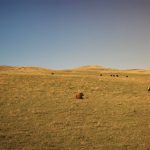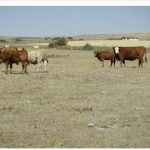One month after the Canadian Bond Rating Service downgraded its ratings of Saskatchewan Wheat Pool, the Dominion Bond Rating Service followed suit.
Dominion dropped its ratings for the company’s unsecured notes to BB from BBB (low) and downgraded its commercial paper program to R-2 (low) from R-2 (middle).
The rating service said the pool failed to improve its operating performance in the third quarter and expressed concern that financial recovery may take longer than expected.
The pool is no longer considered to be an investment grade company.
Read Also

Land crash warning rejected
A technical analyst believes that Saskatchewan land values could be due for a correction, but land owners and FCC say supply/demand fundamentals drive land prices – not mathematical models
“It means some lenders will not want to lend to us, but we’re still going to be in very good position in terms of borrowing from banks and other institutions that know us,” said Sask Pool’s chief financial officer Lyle Spencer.
The DBRS report says the pool’s debt levels are excessive and the company is “highly reliant” upon bank debt. Although earnings have likely bottomed, there is concern that recovery may take longer than expected.
Spencer found good news in the rating: “With a negative trend before, they were expecting that things could get worse. Now they’re saying that basically things are stable.
“A lot of lenders were considering us to have been downgraded by DBRS already, even though it hadn’t happened.”
DBRS calls the new CEO’s reorganization plan to reduce costs and debt levels “well-conceived” but says the company is under a time constraint to implement the plan due to excess capacity and increased competition.
The rating service also said earnings should improve because the company has the most modern and potentially most efficient elevator network in Western Canada.
“They’ll take another look at the rating once debt levels go down and earnings improve, so we’re looking forward to those two conditions being met hopefully not too far off,” said Spencer.

















